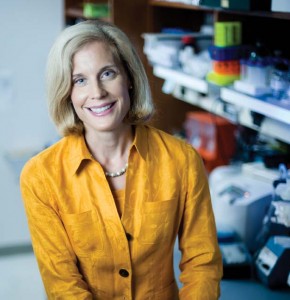Advances against cancer
January 3, 2019

Photo by Joe Howell
While the risks for many types of cancer increase with age, cancer is not restricted to those of older age.
Stephen Huff, the subject of our cover story in this issue of Momentum, was 29 years old when he was diagnosed with lung cancer. He shares his shock at hearing the news, his gratitude about responding to a new targeted therapy and his resolve to raise funds for more progress with lung cancer treatments. Recent studies have indicated rising rates among young adults of cancers that typically strike older people, including colorectal cancer. In “My Story,” Heidi Hall gives a first-person account of dealing with colorectal cancer in her 40s. Other cancers are more prone to occur in teenagers and young adults. Such is the case with Ewing sarcoma, a rare cancer with which Will Mason Moses was diagnosed just as he was entering his freshman year of college. We feature Will Mason as our “Spotlight.”
At Vanderbilt-Ingram Cancer Center, we respect our patients as partners in the fight against cancer and greatly appreciate how they give their time and effort to educate and advocate.
Articles in this issue also showcase the work of our researchers, physicians and other clinicians. We give a glimpse into a day with an exercise physiologist as she helps leukemia patients regain strength after life-saving stem cell transplants. Another article details how a patient partnered with her physician to participate in a clinical trial that changed treatment protocols so that a subset of women with early stage breast cancer won’t have to undergo chemotherapy. A second landmark clinical trial featured in this issue sets the stage for what could become the first new treatment approved in decades for small cell lung cancer.
We are working on other initiatives, such as research projects that have garnered funding from the National Cancer Institute and from individual donors. Some of those initiatives are highlighted in this issue. Our major advances would not be possible without this funding.
Making advances against cancer is a team effort that takes a comprehensive approach, and everyone at Vanderbilt-Ingram is grateful for those who volunteer their time, share their talents and provide funding to support our mission as we strive to reduce the cancer burden for people of all ages.
